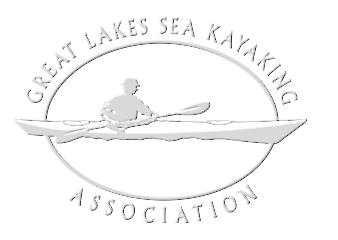White Squall Sessions
HOW TO SIGN-UP
- Prior to Rendezvous: Send your top three choices of sessions before June 2 to Wolfram Esser (just complete and submit the Response Form at the bottom of the listing).
- At Rendezvous: You can wait and select from the remaining unfilled White Squall sessions, if any, on Friday evening after registration. The risk of waiting is that all of your preferred White Squall sessions may be full.
THE FINE PRINT
- There will be a total of 8 sessions offered. We’ll offer the 8 most requested ones. Times may change.
- You will likely end up with one, or two, of your selected White Squall sessions.
- The session organizers will make every reasonable effort to allocate the White Squall sessions fairly.
| Session | Time | What we will cover |
|
1. |
8:30 |
Getting outside and on the water involves risk, but so does breathing! We paddle for some pretty obvious and fine benefits. This session will look at current risk management theory and practice as it applies to sea kayaking on the Great Lakes. We’ll introduce proven models and codes of practice that will give you the confidence to get out there and to manage risk once out on the water. |
|
2. |
8:30 am to 10:00 am |
Timing, approach and co-ordination of strokes to create graceful, strong turns on flat water will be the focus of this session. We’ll spend time on refining your turns to make them intentional and graceful. |
| 3. Stand Up Paddle Boarding for Sea Kayaking – Beginner |
10:30 am to 12:00 pm |
It’s by embracing the unfamiliar that we get good at what we’re used to. Paddling is paddling after all and in that spirit, using SUP’s, we’ll introduce you to the world of Stand Up Boarding and how that can develop more balance, power and efficiency in your kayak strokes. The boards are fast teachers and a lot of fun! |
| 4. Powering Forward |
10:30 am to 12:00 pm |
The forward stroke is at once both the simplest and most complex paddling stroke. You can spend your entire paddling life working on making it more efficient. What we want to do is introduce you to some simple benchmarks for improvement and work with you on developing quiet, effective propulsion. |
| 5. Bombproof Re-entries |
10:30 am to 12:00 pm |
We want to emphasize simplicity in self and assisted re-entries. When things are truly going bad, it’s no time for fancy tricks where valuable energy can be lost. Safe, effective re-entry is all about getting it right the first time, and goes well beyond just getting the bum in the seat. |
| 6. Managing Wind & Waves |
1:30 pm to 2:30 pm |
Working up and downwind requires different strokes, timing and cadence. It’s akin to mogul skiing where you try to use the terrain to your advantage and now we’re adding the forces of the wind to effect better movement. |
| 7. Towing Tricks & Tips |
1:00 pm to 2:30 pm |
Contact and line towing are fundamental skills for anyone venturing out on a trip. It doesn’t have to be fancy – but it sure as heck has to work – quickly! We’ll help you develop your own systems and offer up suggestions for ways to be more efficient. |
| 8. Alternative Rescue Options |
3:00 pm to 4:30 pm |
Think of this session as simply adding to the tool belt. For most of us – in most situations – the key is to stick to the basics. But as you grow as a paddler, it’s important to have other strategies to cope with out of the ordinary rescue situations. |
| 9. Stand Up for Sea Kayaking – Beyond Basics |
3:00 pm to 4:30 pm |
For those who have been on a board before. We’ll develop torso rotation and focus on body/blade mechanics of the catch, power and recovery phases of common strokes and how you can apply that to your sea kayak repertoire. (We will supply the boards, no charge). |
| 10. Practical Group Leadership on Water |
3:00 pm to 4:30 pm |
We will use the boats, water and group to work through scenarios that highlight common leadership issues on water. Be ready to paddle and participate in a lively forum where there aren’t any easy answers. Kayak leadership flows out of knowledge, skills and judgment – but also very much depends on learning to adapt to changing conditions. |
